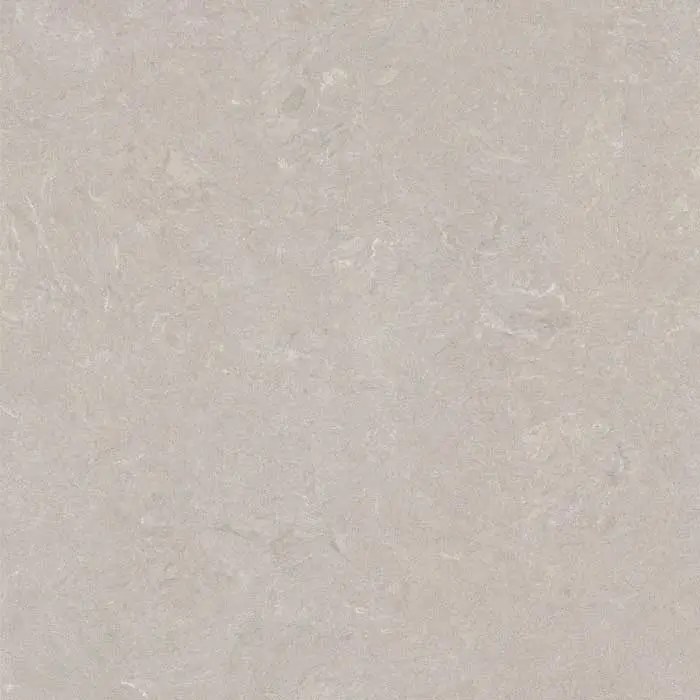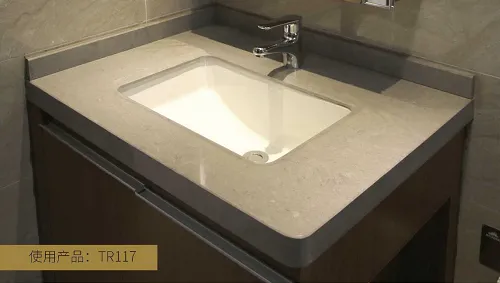As artificial stone (including artificial marble, artificial granite and quartz stone, etc.) gradually becomes a popular choice in home decoration and commercial space, the question of its maintenance and upkeep is also gaining more and more attention.
Among them, the question "Do I need to seal artificial stone?" is particularly common. This article will analyze in detail the properties of artificial stone, the necessity of sealing and its related maintenance methods, to help consumers to scientifically and rationally maintain artificial stone.

What is artificial stone?
Artificial stone, also known as engineered stone, is a synthetic material made by combining natural stone chips with resin through high temperature and high pressure processes. Its main ingredients include quartz sand, resin, pigment, etc. Artificial stone is widely used in kitchen countertops, bathroom counters, walls and other fields because of its texture close to natural stone and diverse color options, and its excellent performance in hardness, wear resistance, stain resistance, etc.
Artificial stone can be divided into the following categories:
1. Artificial marble: The main component is marble powder.
2. Artificial granite: The main component is granite powder.
3. Quartz stone: The main component is quartz powder.
Characteristics of engineered stone
Engineered stone is widely used in kitchen countertops, bathroom countertops, floor and wall decoration, etc. for its beauty, durability and diverse design options. Its main characteristics include:
1. High strength: scratch and impact resistance.
2. Diversity: rich color and texture selection.
3. Stain-resistant and easy to clean: dense surface, not easy to penetrate stains.
4. Environmental protection: the manufacturing process can use waste stone powder.

What does sealing mean?
Sealing is a treatment method that forms a protective film by applying a protective agent on the surface of the stone to prevent liquid penetration and stains from invading.
Does engineered stone need to be sealed?
1. Quartz
Quartz is a kind of artificial stone made of a mixture of natural quartz powder and resin. Because its surface is dense and not easy to penetrate liquids and stains, it usually does not need to be sealed. Quartz has good stain resistance, and daily cleaning only requires warm water and neutral detergent.
2. Artificial marble and artificial granite
The main components of artificial marble and artificial granite are marble powder and granite powder, respectively, which are mixed with resin and solidified. Although they also have certain stain resistance, they have a slightly lower density and slight permeability compared to quartz. In some high-frequency use and high-pollution environments, such as kitchens and bathrooms, proper sealing can increase its anti-fouling ability and extend its service life.

What are the advantages of sealing artificial stone?
Sealing can form a protective layer on the surface of the stone to prevent the penetration of liquids, oil stains and other dirt, reduce stain residue and cleaning difficulty. Through sealing, it can also reduce the erosion of chemicals, acid and alkali substances on engineered stone, maintain its surface gloss and beauty, and extend the service life of the countertop.
Sealing can fill the tiny pores on the surface of the stone, reduce bacterial growth, and improve the hygiene standards of the countertop. It is especially suitable for places with high hygiene requirements such as kitchens and bathrooms.

How to seal artificial stone?
1. Choose the right sealant
There are many sealants available on the market. Consumers should choose the right product according to the type of artificial stone and the use environment. Common sealants include:
① Water-based sealants: environmentally friendly and suitable for indoor environments.
② Solvent-based sealants: strong penetration, suitable for high-frequency use and high-pollution environments.
2. Sealing steps
① Clean the countertop: Use warm water and neutral detergent to thoroughly clean the artificial stone countertop to remove oil stains, dirt and impurities on the surface. After cleaning, wipe it with a clean cloth to ensure that the surface is dry and free of water marks.
② Test the sealant: Test the sealant in an inconspicuous corner or small area to ensure that it does not cause damage or discoloration to the surface of the artificial stone.
③ Apply the sealant evenly: Apply it evenly on the countertop according to the instructions of the sealant. Use a clean cloth or brush to spread the sealant to ensure even coverage.
④ Let it stand for a while (usually 15-30 minutes) after applying the sealant, waiting for the sealant to penetrate and dry.
⑤ Wipe off excess sealant: Use a clean cloth to wipe off excess sealant on the countertop to prevent residue from drying and forming marks.
⑥ Repeated treatment: For countertops that are used frequently, it is recommended to perform two sealing treatments to ensure the best effect. There should be a 24-hour interval between each sealing to ensure complete drying.
⑦ Regular maintenance: After sealing, it is recommended to perform sealing maintenance every 6-12 months to maintain the anti-fouling and antibacterial properties of the countertop.

Risks of not sealing engineered stone
1. Stain penetration: Unsealed artificial stone in a highly polluted environment can easily penetrate into the interior of the countertop, making it difficult to clean, affecting its appearance and service life.
2. Surface damage: Long-term contact with chemicals, acids and alkalis may cause surface damage, loss of gloss and discoloration of artificial stone, reducing its decorative effect.
3. Bacterial growth: In a high-humidity environment, the pores on the surface of unsealed engineered stone may become a breeding ground for bacteria, affecting the hygiene and safety of the countertop.
In summary, whether artificial stone needs to be sealed depends on the specific type of artificial stone and the environment in which it is used. Quartz stone usually does not require sealing treatment, and daily cleaning can maintain its excellent performance. It is recommended that artificial marble and artificial granite be sealed to enhance anti-fouling properties, extend service life and improve antibacterial effects.

